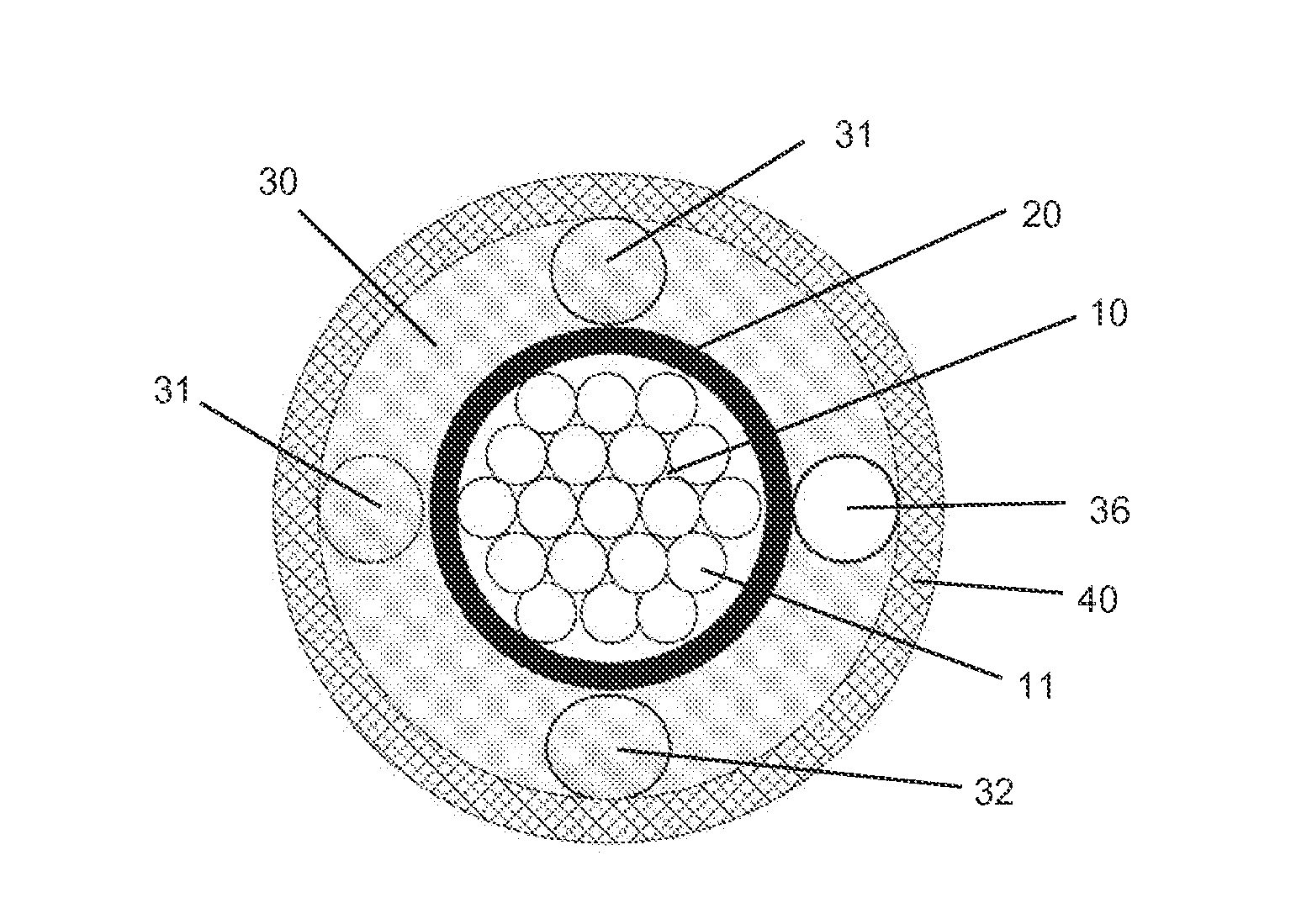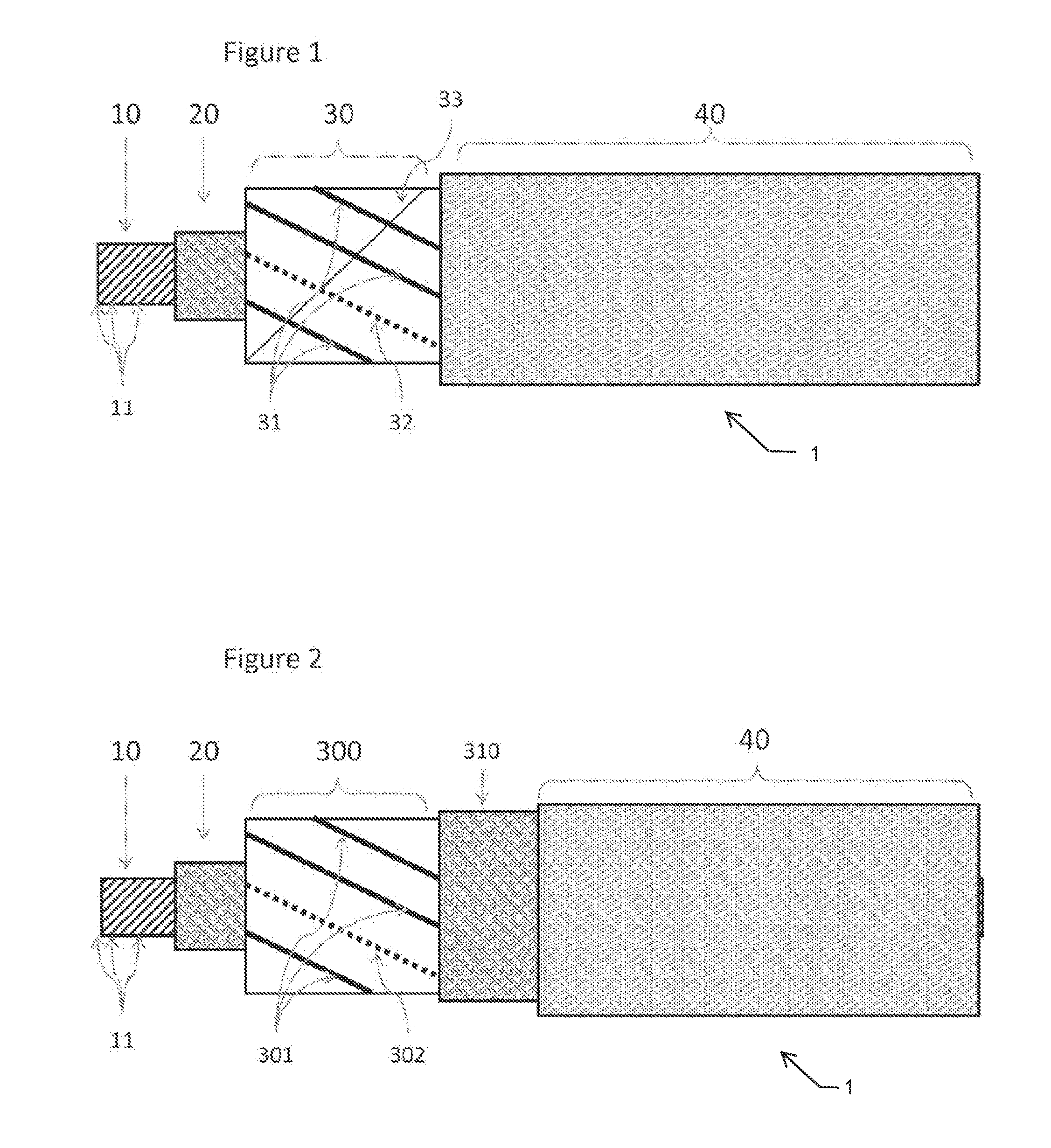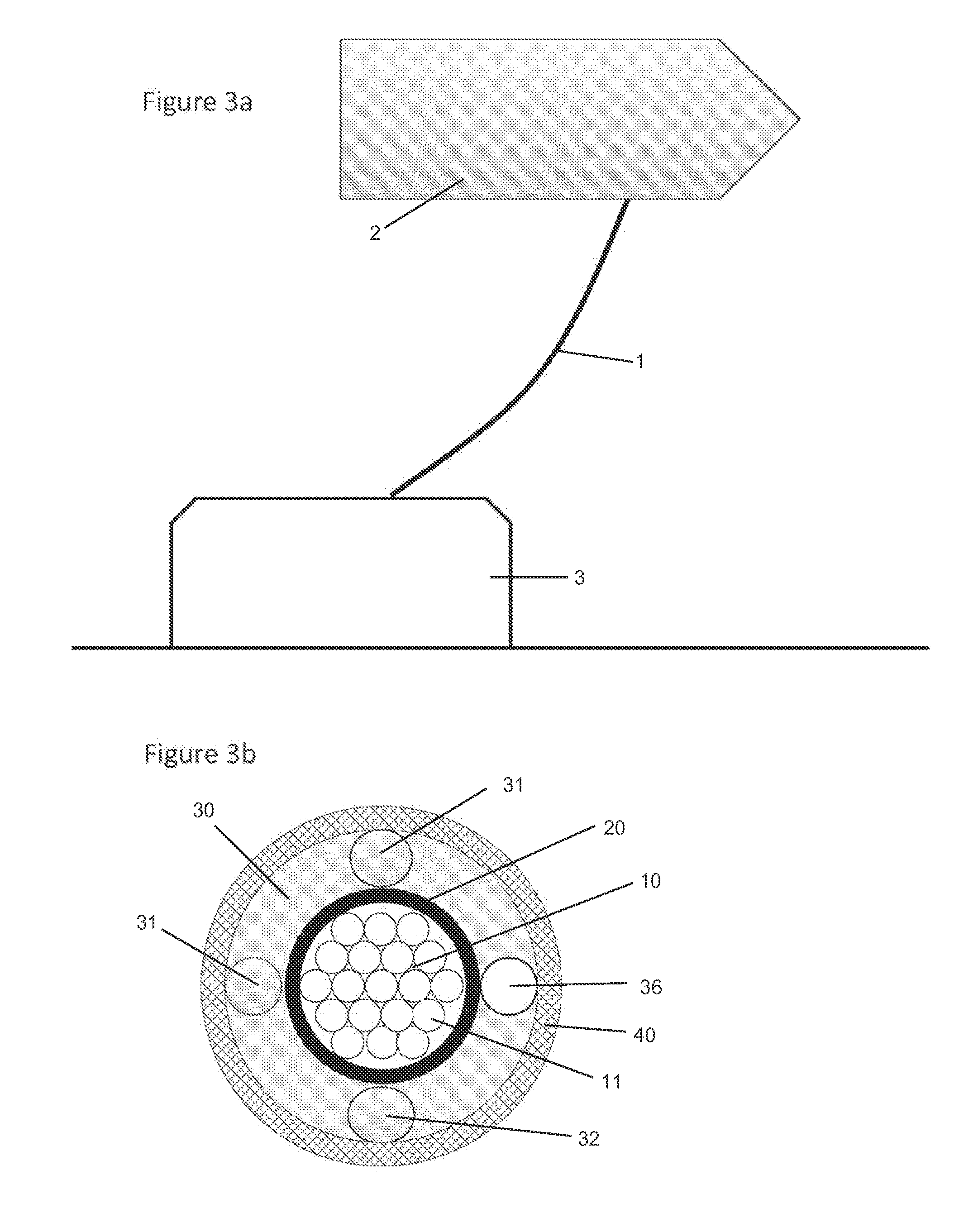High strength tether for transmitting power and communications signals
a high-strength, communications signal technology, applied in the direction of insulated conductors, power cables, cables, etc., can solve the problems of electrical wires and optical fibers being strained by the tether, and achieve the effects of reducing crimp, reducing crimp, and liberalizing spa
- Summary
- Abstract
- Description
- Claims
- Application Information
AI Technical Summary
Benefits of technology
Problems solved by technology
Method used
Image
Examples
example 1
[0036]A tether was constructed as follows:[0037]A single Kevlar™ yarn in the center of the core;[0038]16 yarns twisted around the single central yarn with core twist in the opposite direction from yarn twist;[0039]The pitch of yarn twist in the core of about 0.66 inches;[0040]A tight 12 Kevlar™ yarn braid in the first overbraid;[0041]16 yarn diamond braid, including the fiber optic strand, three electrical conductors and 12 Kevlar (™) yarns in the second overbraid; and[0042]A 16 yarn nylon “carpet yarn” overbraid for protection of the interior components.
The tether as tested to 1000 pounds load without loss of optical or electrical signal carrying capability.
example 2
[0043]A tether was constructed as follows:[0044]A central core of 17 twisted Kevlar™ strands;[0045]A tight overbraid of 16 Kevlar™ strands;[0046]A loose overbraid of 3 electrical conductors, one fiber optic strand, and 12 Kevlar™ strands; and[0047]A protective overbraid of 16 nylon strands.
PUM
| Property | Measurement | Unit |
|---|---|---|
| weight | aaaaa | aaaaa |
| strength | aaaaa | aaaaa |
| pitch angle | aaaaa | aaaaa |
Abstract
Description
Claims
Application Information
 Login to View More
Login to View More - R&D
- Intellectual Property
- Life Sciences
- Materials
- Tech Scout
- Unparalleled Data Quality
- Higher Quality Content
- 60% Fewer Hallucinations
Browse by: Latest US Patents, China's latest patents, Technical Efficacy Thesaurus, Application Domain, Technology Topic, Popular Technical Reports.
© 2025 PatSnap. All rights reserved.Legal|Privacy policy|Modern Slavery Act Transparency Statement|Sitemap|About US| Contact US: help@patsnap.com



